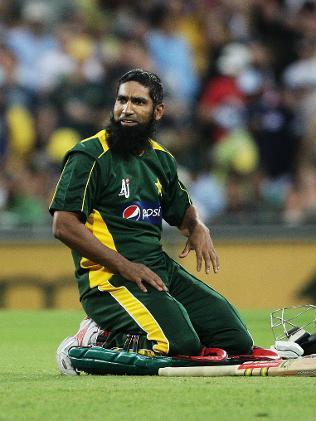Shahid Afridi Biography
souorce(google.com.pk)Sahibzada Mohammad Shahid Khan Afridi, popularly known as Shahid Afridi, is a Pakistani cricketer. Between 1996 and 2012, Afridi played 27 Tests, 334 One Day Internationals, and 46 Twenty20 International for the Pakistani national team.
He made his ODI debut on 2 October 1996 against Kenya and his Test debut on 22 October 1998 against Australia.
He is known for his aggressive batting style, and holds the record for the fastest ODI century which he made in his first international innings, as well as scoring 32 runs in a single over, the second highest scoring over ever in an ODI.
He also holds the distinction of having hit the most number of sixes in the history of ODI cricket.Afridi considers himself a better bowler than batsman, and has taken 48 Test wickets and over 300 in ODIs.
Currently Afridi is the leading wicket taker in the Twenty20 format taking 53 wickets from 43 matches.Shahid Afridi has signed to play for the Sydney Thunderin Australia’s Twenty20 Big Bash league.
In June 2009, Afridi took over the Twenty20 captaincy from Younus Khan, and was later appointed ODI captain for the 2010 Asia Cup. In his first match as ODI captain against Sri Lanka he scored a century however Pakistan still lost by 16 runs.
He then also took over the Test captaincy but resigned after one match in charge citing lack of form and ability to play Test cricket; at the same time he announced his retirement from Tests. He retained the captaincy in limited-overs form of the game and led the team in the 2011 World Cup. In May 2011, having led Pakistan in 34 ODIs Afridi was replaced as captain.
Later that month he announced his conditional retirement from international cricket in protest against his treatment by the Pakistan Cricket Board (PCB); in October he reversed his decision. UNICEF and Pakistani authorities have taken Shahid Afridi on board for its anti-polio campaign in the tribal belt of lawless Waziristan region.
His general style of batting is very aggressive and attack oriented and has earned him the nickname “Boom Boom Afridi” for his fastest One Day International century just in 37 balls. As of 22 May 2007, he has an ODI strike rate of 109.38 runs per 100 balls, the highest in the game’s history. This attitude has been transferred to Test cricket as well, with Afridi scoring at a relatively high strike rate of 86.13 in Tests. He has an approach to batting that can change the tempo of a game and inspire the mood of an audience, as shown when a mass exodus of spectators occurred in Pakistan in late 2005 following his dismissal from the crease. He hits many sixes long and high, favoring straight down the ground or over midwicket. A trademark shot is a crossbatted flick to the leg-side to a ball outside off stump.[8]. This explosive style has led to some memorable shots, most notably the first ever 12 in power cricket in 2002, where Afridi successfully hit the roof. [9] However, his aggressive style increases his risk of getting out and he is one of the most inconsistent batsmen in cricket. This is reflected by the fact that he is the only player to score more than 5000 ODI runs at an average under 25.
Bowling-wise, his stock ball is the leg break, but his armory also includes the conventional off break and a ‘quicker one’ which he can deliver at nearly 80 mph in the style of a medium-pacer. He bowls at a high speed for a spinner, resulting in lesser turn, and relying more on variations in speed. He occasionally sends down a bouncer to a batsmen, which is very rare for a spin bowler.
International career
In October 1996 at the age of sixteen he was brought into the ODI team as a legspinner as a replacement for the injured Mushtaq Ahmed. He then gained notability as a pinch-hitter and began opening with Saeed Anwar. He holds the record for scoring the fastest century in one-day internationals (off 37 balls)[12], scored in only his second match and his first ODI innings. He also shares with Brian Lara the record for the third-fastest century in ODIs (off 45 balls). One of Pakistan’s most useful all-rounders, he has an extremely aggressive batting style, which has garnered him over 5,000 ODI runs (including an erstwhile world-record 249 sixes, recently broken by Sanath Jayasuriya), as well as taking over 250 wickets at ODI and 47 at Test level.
For various reasons, including a perception that he lacks patience in his batting, Afridi had limited opportunity in Test matches, although he currently averages in the high thirties and mid-thirties with bat and ball respectively. As it is, Afridi has featured in less than one third of the Test Matches played by Pakistan over the course of his career.[13] However, he made his presence felt in the third Test against India in March 2005, scoring a quick-fire second-innings half-century and taking five wickets in the match (including Tendulkar twice) to help Pakistan to win the game and register a series draw.
It is perceived that his batting struggles on bouncy pitches and against opponents like Australia, although his record against the Australians has improved over time. Although he has had success as an opener on sub-continent pitches, Afridi is often moved into the lower order as well.
Afridi was more consistent with his batting and bowling throughout 2005, starting with the tours of India and West Indies and through to the England tour. The Pakistani coach Bob Woolmer helped Afridi to reach a fuller potential by improving his shot selection and giving him free rein over his batting attitude.
In the 2007 World Twenty20, he performed poorly with the bat but brilliantly with the ball, earning the Man of the Series award, though he failed to take a wicket in the final and was out for a golden duck.
Career Highlights
* On 4 October 1996, playing his maiden international innings, Afridi hit the fastest One-Day century off 37 balls against Sri Lanka in Nairobi. His innings included 28 runs off one of Sanath Jayasuriya’s overs, whose record he broke. [15]
* Youngest player in history to make an ODI century at just 16 years and 217 days with his 37 ball ton against Sri Lanka. It included 11 sixes and 6 fours. [16]
* Made a half-century from 26 balls and took 3 second-innings wickets in Pakistan’s series-drawing Test victory against India in March 2005.[14]
* Holds the joint record with Brian Lara for the third fastest ODI century off 45 balls in April 2005 against India. [17] This actually was the first match that witnessed the Indian cricketer-turned-commentator Ravi Shastri make him the nickname Boom Boom Afridi.
* Equal highest aggregate sixes scored in the 50-over game, shared the legendary Sri Lankan batsman Sanath Jayasuriya, and he the most sixes per innings record.
* Scored four consecutive sixes off a Harbhajan Singh over in a Test match against India in January 2006, matching a feat that Kapil Dev achieved in 1990.
* Was the first player to score 12 runs off one ball, by hitting the roof of the Millennium Stadium. This took place in a game of Power Cricket.[citation needed][clarification needed]
* Holds four of the top eight fastest ODI half centuries, twice completed in 18 balls and twice in 20 balls. He has also scored a half century off just 21 balls.
* Made 32 runs off a Malinga Bandara over in an ODI game at Abu Dhabi in 2007. He struck four consecutive sixes and it was the 2nd most expensive over in ODI history.
* Afridi is only third player in ODI history to achieve the combination of 5000 runs and 200 wickets. The other players being Sri Lankan batsman Sanath Jayasuriya and South African Jacques Kallis.
Shahid Afridi

Shahid Afridi

Shahid Afridi

Shahid Afridi

Shahid Afridi
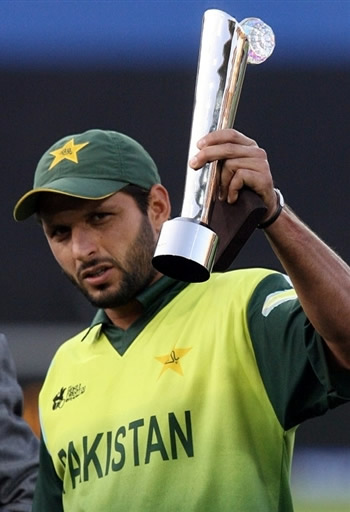
Shahid Afridi

Shahid Afridi
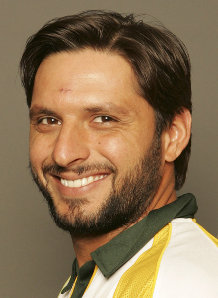
Shahid Afridi

Shahid Afridi

Shahid Afridi



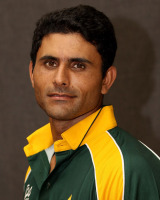









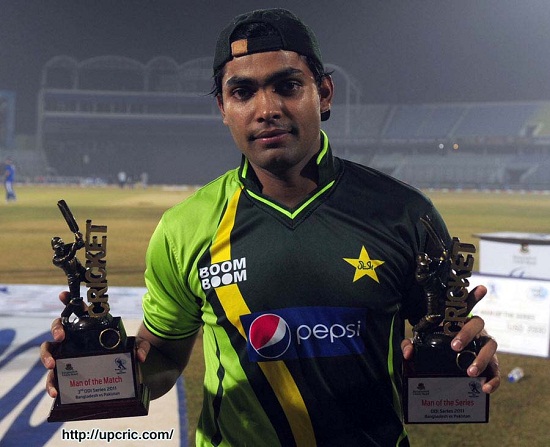

.jpg)










.jpg)






